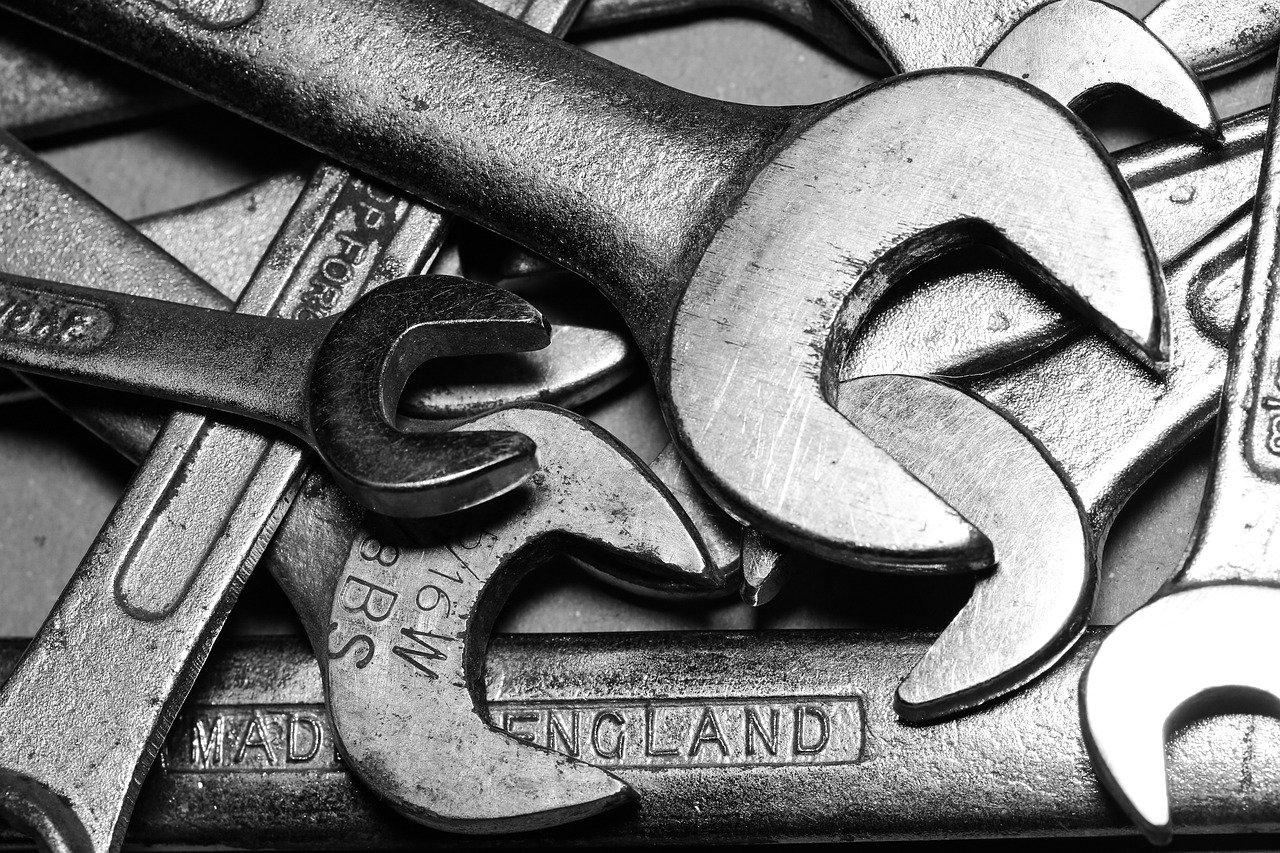The Honda Accord has long been regarded as a reliable and well-built vehicle, but not all model years have lived up to this reputation. This article delves into the reliability of the Honda Accord over the years, pinpointing specific models that have drawn negative feedback and encountered various issues. By understanding these problem years, potential buyers can make well-informed decisions when considering this popular sedan.
Certain Honda Accord models have garnered poor reviews due to a range of issues. For instance, the 2003 and 2008 models are often cited for their significant mechanical problems. Buyers should be cautious when considering these years, as they may lead to costly repairs and dissatisfaction.
Different model years of the Honda Accord have been associated with specific problems. For example, the 2001 model is notorious for its transmission failures and engine issues, while the 2013 model has faced complaints regarding its electrical systems and air conditioning failures. Understanding these issues can provide critical insight into which models to avoid.
Some years, such as 2008 and 2010, are particularly infamous for engine-related issues, including excessive oil consumption and premature failure. Recognizing these problem years can help potential buyers steer clear of these costly issues.
Transmission failures have been reported in models like the 2003 and 2005 Honda Accord, leading to expensive repairs. Identifying these problematic years is crucial for making a more informed purchase.
Electrical problems can also plague certain Honda Accord years, affecting everything from lights to power windows. The 2013 model has been particularly noted for these issues, making it essential for buyers to be aware of such potential pitfalls.
Some Honda Accord models have been subject to safety recalls, impacting their reliability. The 2008 and 2010 models, for instance, have had significant recalls that could pose safety hazards. Knowing which years have had notable recalls can aid buyers in avoiding these risks.
Reliability ratings can vary significantly from year to year for the Honda Accord. Models like the 2016 and 2017 have received high reliability ratings, while the 2003 and 2008 models have received poor ratings. Understanding these ratings can help buyers identify the most dependable options.
Consumer Reports provides valuable insights into the reliability of various Honda Accord years, highlighting models that fall short of expectations. Their findings indicate that the 2008 model is among the least reliable, while the 2016 version is praised for its dependability.
Automotive experts often weigh in on which Honda Accord years to avoid based on performance and reliability data. Their insights can be invaluable for potential buyers, particularly when considering the 2003 and 2008 models, which frequently receive negative feedback.
While some years should be avoided, others stand out for their reliability and performance. The 2016 and 2017 models are frequently highlighted as top choices for buyers seeking a dependable Honda Accord.
Certain model years of the Honda Accord are lauded for their reliability and overall performance. The 2016 and 2017 models are often recommended due to their strong track records and positive user feedback.
Regardless of the model year, proper maintenance is key to extending the life of any Honda Accord. Regular oil changes, timely repairs, and routine inspections can enhance reliability and performance, ensuring that your vehicle remains in excellent condition.
Learning to identify signs of trouble in a Honda Accord can help buyers avoid problematic models. Look for signs such as unusual noises, warning lights, or inconsistent performance, as these can indicate underlying issues that may lead to future headaches and expenses.

Which Honda Accord Models Have the Worst Reviews?
The Honda Accord has long been celebrated for its reliability and performance. However, not all model years have lived up to this reputation. Identifying the Honda Accord models that have received poor reviews can save potential buyers from future headaches and costly repairs. In this section, we will delve into the specific models that have garnered negative feedback and explore the reasons behind these reviews.
Several Honda Accord models have been reported to experience significant issues, leading to negative consumer feedback. The following model years are often cited as the most problematic:
- 2003 Honda Accord: This model year is notorious for its transmission failures, with many owners reporting issues that lead to costly repairs. The automatic transmission in particular has been a common point of failure.
- 2008 Honda Accord: Owners have frequently complained about excessive oil consumption and engine problems. These issues can lead to severe engine damage if not addressed promptly.
- 2013 Honda Accord: This model has faced criticism for its electrical system failures, which can affect various components including the power windows and dashboard lights. Such problems can be both frustrating and expensive to fix.
- 2014 Honda Accord: Reports of brake issues and problems with the infotainment system have plagued this model year. These complaints highlight the importance of thorough inspections before purchasing.
Understanding the specific issues associated with these models can provide valuable insight into which years to avoid. Buyers should conduct thorough research and consider consumer reviews and expert opinions before making a purchase.
Different model years of the Honda Accord have been associated with various mechanical and electrical problems. Here are some common issues:
- Engine Problems: Some model years, particularly the 2008 and 2013, have been linked to excessive oil consumption and premature engine failures.
- Transmission Issues: The 2003 Honda Accord is particularly notorious for transmission failures, which can lead to expensive repairs and replacements.
- Electrical Failures: Models like the 2013 Accord have experienced various electrical system failures, affecting everything from lights to power accessories.
Being aware of these common problems can help potential buyers avoid purchasing a model with an unreliable history.
Reliability ratings can significantly vary from year to year for the Honda Accord. Understanding these ratings can help buyers identify the most dependable models. According to Consumer Reports, certain years consistently rank lower due to reported issues, while others stand out for their reliability. For instance, while the 2003 and 2008 models often receive poor ratings, the 2015 and newer models are frequently praised for their performance and durability.
In summary, potential buyers should be cautious when considering specific Honda Accord models. By identifying the models that have received poor reviews and understanding the common issues associated with them, buyers can make more informed decisions and avoid potential pitfalls.

What Common Problems Affect Specific Honda Accord Years?
The Honda Accord is a popular choice among car buyers due to its reputation for reliability and comfort. However, not all model years are created equal. Understanding the common problems associated with specific Honda Accord years can help potential buyers steer clear of models that may lead to costly repairs and inconveniences. This article delves into the most notable issues that have plagued various Honda Accord models over the years.
Different model years of the Honda Accord have been linked to unique mechanical and electrical challenges. By being aware of these issues, buyers can make informed decisions when considering a purchase.
- 2003-2004 Honda Accord: These models are notorious for transmission failures. Many owners have reported issues with the automatic transmission, leading to expensive repairs. If you’re considering one of these years, it’s wise to have a thorough inspection done.
- 2008 Honda Accord: This model has been associated with engine problems, particularly related to excessive oil consumption. Owners have noted that the engine may require frequent top-ups, which can lead to premature wear and tear.
- 2013 Honda Accord: Electrical issues are common in this model year. Problems with the infotainment system, including malfunctioning displays and Bluetooth connectivity issues, have been frequently reported. This can significantly impact the driving experience.
- 2016 Honda Accord: This year has faced criticism for brake problems. Some drivers have experienced premature wear on brake pads and rotors, which can lead to safety concerns if not addressed promptly.
Engine-related issues can be particularly frustrating for owners. The 2008 Honda Accord, for example, is known for its excessive oil consumption, which can lead to serious engine damage if not monitored closely. Owners have reported that they need to check oil levels frequently, and some have even experienced engine failure due to this problem.
Transmission failures are a significant concern for certain Honda Accord models, particularly the 2003-2004 years. Many owners have faced costly repairs, and in some cases, entire transmission replacements. It’s essential for potential buyers to be aware of these issues and consider getting a vehicle history report before making a purchase.
Electrical system failures can affect various components, including the power windows, lights, and infotainment systems. The 2013 Honda Accord has been particularly noted for these issues, with many drivers reporting that their displays would malfunction or that Bluetooth connectivity would frequently drop. These problems can be annoying and may require expensive repairs to fix.
Some Honda Accord models have been subject to safety recalls. For instance, the 2016 model faced recalls due to issues with the airbag system. Staying informed about recalls is vital for ensuring the safety and reliability of your vehicle. Potential buyers should check the National Highway Traffic Safety Administration (NHTSA) website for any recalls that may affect the model they are considering.
In conclusion, being informed about the common problems associated with specific Honda Accord years can significantly impact your purchasing decision. By avoiding models with known issues, you can save yourself from potential headaches and expensive repairs in the future. Always conduct thorough research and consider having a trusted mechanic inspect any used vehicle before making a commitment.
Engine Problems in Honda Accord Models
The Honda Accord, a popular mid-size sedan, has been a staple in the automotive market for decades. However, not all model years have been created equal, particularly when it comes to engine reliability. Understanding the engine problems associated with specific Honda Accord models can save potential buyers from unexpected repair costs and frustration. This section delves into the years that have garnered a reputation for engine-related issues, helping you make an informed decision.
Several model years of the Honda Accord have been reported to experience significant engine problems. Particularly, the years 2008 to 2010 are notorious for excessive oil consumption, which can lead to serious engine damage if not addressed promptly. Owners have reported that their vehicles require frequent oil top-offs, leading to concerns about long-term reliability.
- Excessive Oil Consumption: Many Honda Accord models from the late 2000s have been known to consume oil at an alarming rate. This can result in engine wear and potentially catastrophic failure if left unchecked.
- Piston Ring Issues: In some cases, the piston rings may fail prematurely, which exacerbates oil consumption issues and can lead to a complete engine rebuild.
- Engine Failure: There have been reports of complete engine failure in certain models, often linked to the aforementioned oil consumption problems.
Being proactive can help you catch engine problems before they escalate. Here are some signs to watch for:
- Oil Leaks: Regularly check for oil spots where you park your vehicle.
- Oil Levels: Monitor your oil levels frequently and top off as needed.
- Check Engine Light: Pay attention to any warning lights on your dashboard, as they can indicate underlying issues.
Ignoring engine problems can lead to severe consequences, including:
- Higher Repair Costs: Addressing issues early can save you from costly repairs down the line.
- Decreased Resale Value: A vehicle with a history of engine problems will likely have a lower resale value.
- Safety Risks: Engine failure while driving can pose significant safety hazards.
Automotive experts often advise potential buyers to conduct thorough research on the specific model year they are considering. The Honda Accord has a strong reputation for reliability, but certain years have raised red flags. Consulting resources like Consumer Reports and automotive forums can provide valuable insights into the experiences of other owners.
In summary, while the Honda Accord remains a popular choice for many drivers, it is crucial to be aware of the engine problems that have plagued specific model years. By understanding these issues and taking proactive measures, you can enhance your chances of owning a reliable vehicle.
Transmission Issues in Certain Honda Accord Years
The Honda Accord has long been celebrated for its reliability and performance, but not all model years have lived up to this reputation. Among the various issues reported by owners, transmission failures stand out as a significant concern for specific Honda Accord models. Understanding which years are affected can save potential buyers from unexpected repair costs and headaches.
Transmission issues have been particularly prevalent in certain Honda Accord years, leading to costly repairs that can run into thousands of dollars. The following model years have been noted for their transmission failures:
- 2003-2004 Honda Accord: Many owners reported problems with the automatic transmission, including slipping and failure to engage.
- 2005 Honda Accord: This model year saw a spike in complaints regarding harsh shifting and transmission fluid leaks.
- 2008 Honda Accord: Issues with the transmission control module led to erratic shifting and, in some cases, complete transmission failure.
- 2013 Honda Accord: Reports of vibration during acceleration and delayed shifting have been common among this year’s models.
The ramifications of transmission failures can be significant. Owners may face:
- High Repair Costs: Replacing or rebuilding a transmission can be one of the most expensive repairs, often ranging from $2,000 to $4,000.
- Decreased Resale Value: Vehicles with known transmission issues typically have lower resale values, impacting owners looking to sell or trade in their cars.
- Inconvenience: Frequent repairs can lead to time lost and frustration for drivers who rely on their vehicles for daily transportation.
Being aware of the signs of transmission issues can help owners address problems before they escalate. Common indicators include:
- Slipping Gears: If the vehicle unexpectedly changes gears or slips out of gear, it may indicate transmission trouble.
- Unusual Noises: Grinding, whining, or clunking sounds while shifting can signal serious transmission problems.
- Fluid Leaks: Transmission fluid that appears under the vehicle is a red flag that should not be ignored.
- Warning Lights: The check engine light or transmission warning light may illuminate, indicating a potential issue.
For prospective buyers, it is essential to conduct thorough research before purchasing a used Honda Accord. Here are some practical tips:
- Check Vehicle History Reports: Services like Carfax can provide valuable information about past issues, including transmission problems.
- Request Maintenance Records: A well-documented service history can indicate how well the vehicle has been cared for.
- Test Drive: Pay attention to how the transmission feels during the test drive. Look for smooth shifts and listen for any unusual noises.
- Consult Consumer Reviews: Online forums and review sites can offer insights from current and former owners about their experiences with specific model years.
Electrical System Failures in Honda Accord Models
The Honda Accord has long been celebrated for its reliability and performance. However, certain model years have faced significant electrical system failures that can lead to various inconveniences and costly repairs. Understanding these issues is crucial for potential buyers who want to avoid the pitfalls associated with specific models. This article delves into the common electrical problems that have been reported in certain Honda Accord years and offers insights into how to make a more informed purchasing decision.
Many Honda Accord models have been reported to experience a range of electrical problems. These issues can manifest in several ways, including:
- Faulty Power Windows: Many owners have reported that the power windows become unresponsive or fail to operate altogether.
- Malfunctioning Lights: Headlights and taillights may flicker or fail, creating safety concerns for drivers.
- Battery Drain: Some models have issues with battery drainage, often due to electrical components that do not shut off properly.
- Dashboard Warning Lights: Persistent warning lights can indicate underlying electrical issues, often leading to expensive diagnostic tests.
While electrical problems can occur in any vehicle, certain years of the Honda Accord have been more prone to these issues. Notably, models from the years 2003 to 2007 have received considerable negative feedback regarding their electrical systems. Owners have reported:
- Frequent failures of the power window motors.
- Issues with the vehicle’s electrical system that lead to unexpected battery failures.
- Problems with the lighting system that require expensive repairs.
To steer clear of the electrical issues associated with certain Honda Accord models, potential buyers should take the following steps:
- Research Reliability Ratings: Check reliability ratings and consumer reviews for specific model years.
- Inspect the Vehicle: Conduct a thorough inspection of the electrical components, including lights and power windows, before purchasing.
- Request Maintenance Records: Obtain maintenance history to see if previous owners addressed any electrical problems.
Electrical system failures can lead to more than just inconvenience; they can also affect the overall performance and value of the vehicle. Continuous electrical issues may lead to:
- Increased Repair Costs: Ongoing electrical problems often necessitate frequent repairs, which can quickly add up.
- Decreased Resale Value: A car with a history of electrical issues may have a lower resale value, making it a less attractive option for future buyers.
- Safety Concerns: Malfunctioning lights or other critical electrical components can pose serious safety risks on the road.
For current owners of affected Honda Accord models, staying proactive about maintenance is key. Here are some tips:
- Regular Inspections: Have your electrical system inspected regularly to catch any potential issues early.
- Use Quality Parts: When replacing electrical components, opt for OEM parts to ensure compatibility and reliability.
- Stay Informed: Keep up with recalls and service bulletins related to your vehicle’s model year.
By being aware of these electrical issues and following the recommended steps, both potential buyers and current owners can enhance their experience with the Honda Accord.
Safety Recalls and Honda Accord Years
The Honda Accord has long been celebrated for its reliability and performance. However, some model years have faced significant safety recalls that could impact their overall dependability. Understanding which years have been affected by these recalls is crucial for potential buyers looking to make informed decisions. This article delves into the safety recalls associated with various Honda Accord models, helping you steer clear of potential safety hazards.
Several Honda Accord model years have been subject to safety recalls, raising concerns among consumers. Here are some of the most notable years to be aware of:
- 2008: This year saw recalls due to issues with the brake system and power steering, which could lead to reduced control of the vehicle.
- 2013: Certain models were recalled for problems related to the airbag system, which could fail to deploy in the event of a collision.
- 2016: Recalls in this year involved the fuel pump, which could lead to engine stalling, posing serious safety risks.
- 2018: This model year was affected by issues with the rearview camera, which could fail to display images, increasing the risk of accidents.
Understanding the implications of safety recalls is essential for any potential buyer. Here are some key points to consider:
- Check Recall History: Before purchasing a used Honda Accord, it’s wise to check the vehicle’s recall history. Websites like the NHTSA (National Highway Traffic Safety Administration) provide comprehensive recall information.
- Repair Status: If a vehicle has been recalled, ensure that the necessary repairs have been completed. A dealer can provide documentation confirming that the recall repairs have been addressed.
- Safety Ratings: Look at safety ratings from trusted sources. A vehicle with a history of multiple recalls may have lower safety ratings, which could impact your insurance rates and resale value.
Safety recalls can significantly impact the reliability of specific Honda Accord models. Here’s how:
- Increased Repair Costs: A vehicle with unresolved recalls may require expensive repairs, affecting the overall cost of ownership.
- Potential for Accidents: Issues related to recalls, such as faulty brakes or airbags, can increase the risk of accidents, leading to injuries or fatalities.
- Depreciation: Models with a history of recalls may depreciate faster than others, impacting resale value and overall investment.
If you currently own a Honda Accord or are considering purchasing one, here are some best practices to ensure safety and reliability:
- Regular Maintenance: Keep up with routine maintenance to ensure that your vehicle remains in good condition.
- Stay Informed: Regularly check for any new recalls or safety advisories related to your model year.
- Consult Professionals: If you notice any unusual symptoms in your vehicle, consult a professional mechanic to diagnose potential issues early.
In summary, while the Honda Accord is generally regarded as a reliable vehicle, being aware of safety recalls and their implications is vital for potential buyers. By understanding which model years to avoid and staying informed about your vehicle’s status, you can make more informed decisions and ensure your safety on the road.

How Do Honda Accord Years Compare in Reliability Ratings?
The Honda Accord has long been a staple in the automotive market, renowned for its reliability and performance. However, reliability ratings can fluctuate significantly from year to year. This variability can greatly influence a buyer’s decision, making it essential to understand which model years are deemed most dependable. In this section, we will delve into how different Honda Accord years compare in terms of reliability ratings, helping potential buyers make informed choices.
Several factors contribute to the reliability ratings of Honda Accord models. These include:
- Manufacturing Quality: Variations in build quality can lead to differences in reliability.
- Consumer Feedback: Reviews and ratings from actual owners provide valuable insights into the performance of specific model years.
- Expert Evaluations: Automotive experts often conduct thorough assessments, influencing overall reliability ratings.
- Common Issues: Certain model years may be plagued by recurring problems, impacting their reliability scores.
When evaluating the Honda Accord’s reliability, it’s crucial to look at various model years. According to consumer reports and expert analyses, the following years are often highlighted:
- 2013: This model year is frequently praised for its strong performance and minimal reported issues.
- 2015: Known for its fuel efficiency and comfortable ride, the 2015 Accord has garnered positive reviews.
- 2018: With advanced safety features and a robust engine, this year is regarded as one of the best for reliability.
While some years shine in reliability ratings, others have garnered negative feedback. Potential buyers should be cautious of:
- 2008: This model year faced numerous complaints regarding engine performance and transmission issues.
- 2010: Reports of electrical system failures have made this year less favorable among consumers.
- 2013: Although praised overall, some units experienced issues with the brake system.
Consumer Reports is a trusted source for reliability ratings, providing detailed insights into various Honda Accord years. Their evaluations often highlight:
- Overall Satisfaction: Many Accord owners report high satisfaction rates, particularly with newer models.
- Longevity: The Honda Accord is known for its durability, often lasting well beyond the average lifespan of other vehicles.
Automotive experts play a significant role in shaping public perception of the Honda Accord’s reliability. Their evaluations often consider:
- Performance Metrics: Experts analyze engine performance, fuel efficiency, and comfort.
- Repair Frequencies: They assess how often certain models require repairs, influencing reliability ratings.
In summary, understanding how Honda Accord years compare in reliability ratings is crucial for potential buyers. By considering both consumer feedback and expert evaluations, buyers can make more informed decisions about which models to pursue and which to avoid. This knowledge not only enhances the purchasing experience but also ensures a more satisfying ownership journey.
Consumer Reports on Honda Accord Reliability
The Honda Accord has long been celebrated for its reliability and performance, yet not all model years have lived up to this reputation. Consumer Reports provides valuable insights into the reliability of various Honda Accord years, highlighting models that may fall short of expectations. This information is crucial for potential buyers, as it can guide their purchasing decisions and help them avoid models with known issues.
Over the years, certain Honda Accord models have garnered negative feedback due to a range of issues. For instance, the 2003 and 2008 models have been frequently mentioned in consumer complaints due to their transmission failures and engine problems. Identifying these models can save buyers from potential headaches and expensive repairs.
Different model years of the Honda Accord have been associated with specific mechanical and electrical problems. For example, the 2010 model has been known to experience issues with its electrical system, leading to problems with power windows and dashboard lights. Understanding these issues can provide insight into which models to avoid.
Some Honda Accord years are notorious for engine-related issues, including excessive oil consumption and premature failure. The 2008 and 2013 models, for instance, have reported high rates of oil leaks and engine stalls, making them less reliable options. Knowing which years to avoid can help you steer clear of these problems.
Transmission failures have been reported in specific Honda Accord models, particularly the 2003 and 2004 years. These issues often lead to costly repairs and can significantly impact the vehicle’s performance. It’s crucial to identify these years to make a more informed purchase.
Electrical problems can plague certain Honda Accord years, affecting everything from lights to power windows. The 2010 model, for instance, has been flagged for frequent electrical malfunctions, which can lead to safety concerns. Awareness of these issues can guide buyers toward more reliable options.
Some Honda Accord models have been subject to safety recalls that can affect their reliability. The 2001 Honda Accord, for example, faced multiple recalls due to issues with airbags and seat belts. Knowing which years have had significant recalls can help you avoid potential safety hazards.
Reliability ratings can vary significantly from year to year for the Honda Accord. According to Consumer Reports, models from 2011 onward generally receive higher reliability ratings, while older models often fall short. Understanding these ratings can help buyers identify the most dependable models.
Automotive experts often weigh in on which Honda Accord years to avoid based on performance and reliability data. Their insights can be invaluable for potential buyers. For instance, experts frequently recommend avoiding the 2003 and 2008 models due to their documented issues.
While some years should be avoided, others stand out for their reliability and performance. The 2015 and 2016 models, for example, are praised for their solid construction and low maintenance costs. Identifying these models can help buyers find the best options available.
Certain model years of the Honda Accord are consistently praised for their reliability and overall performance. The 2011 and 2014 models, for example, receive high marks from both consumers and experts alike. Highlighting these years can assist buyers in making more informed choices.
Regardless of the model year, proper maintenance is key to extending the life of any Honda Accord. Regular oil changes, timely brake inspections, and maintaining tire pressure can enhance reliability and performance, regardless of the specific model year.
Learning to identify signs of trouble in a Honda Accord can help buyers avoid problematic models. Look for warning lights on the dashboard, unusual noises from the engine, or signs of leaks under the vehicle. Recognizing these red flags can prevent future headaches and expenses.
Expert Opinions on Honda Accord Reliability
The Honda Accord has long been a favorite among car enthusiasts and everyday drivers alike, known for its reliability and performance. However, not all model years are created equal. Expert opinions play a crucial role in helping potential buyers navigate the complexities of Honda Accord ownership. By analyzing performance and reliability data, automotive experts often highlight specific years that buyers should approach with caution.
Automotive experts frequently evaluate Honda Accord models based on a variety of factors, including mechanical reliability, customer satisfaction, and repair frequency. Their analyses reveal that certain model years have recurring issues that can lead to significant long-term costs for owners. For instance, models from the early 2000s are often flagged for problems related to their transmission systems and engine performance.
Each problematic model year tends to exhibit unique issues. For example:
- 2003-2004 Models: Known for excessive oil consumption and engine failures.
- 2008-2010 Models: Frequently report transmission failures that can lead to costly repairs.
- 2013 Models: Experienced significant electrical system failures, affecting various components.
Understanding these specific issues can help buyers avoid models that may lead to unexpected expenses.
Safety recalls can significantly affect the reliability of any vehicle, including the Honda Accord. Certain model years have been subject to multiple recalls, which can indicate underlying issues. For instance, the 2016 Honda Accord faced recalls related to airbag malfunctions and brake system failures. Buyers should research these recalls and consider them when evaluating potential purchases.
Consumer Reports provides valuable insights into the reliability of Honda Accord models. Their annual reliability ratings often highlight which years are most dependable and which ones fall short. For instance, the 2011 and 2012 models have been praised for their exceptional reliability, while others have been criticized for frequent breakdowns.
When assessing which Honda Accord years to avoid, potential buyers should consider:
- Service History: A well-documented service history can indicate how well the vehicle has been maintained.
- Owner Reviews: Feedback from current and previous owners can provide real-world insights into reliability.
- Professional Inspections: Having a trusted mechanic inspect the vehicle can uncover hidden issues.
Expert opinions serve as a valuable resource for potential buyers. By understanding which years have received negative feedback, buyers can make informed decisions that protect their investment. Consulting with automotive experts or utilizing platforms that aggregate reliability data can further enhance purchasing confidence.
In conclusion, while the Honda Accord is generally regarded as a reliable vehicle, being aware of specific years to avoid can save buyers from future headaches. By leveraging expert insights and conducting thorough research, prospective owners can find a model that meets their needs and expectations.

What Are the Best Years for Honda Accord?
The Honda Accord has long been celebrated for its reliability and performance, making it a popular choice among car buyers. However, not all model years are created equal. Understanding which years stand out for their dependability can significantly enhance your purchasing decision. In this section, we will explore the best years for the Honda Accord, highlighting models that have received positive reviews and are known for their exceptional performance.
When evaluating the best years for the Honda Accord, several models consistently receive high marks from both consumers and experts. Notably, the following years have been praised for their reliability:
- 2013 Honda Accord: This model year is often lauded for its fuel efficiency, spacious interior, and advanced safety features. It received high marks in reliability ratings.
- 2015 Honda Accord: Known for its smooth ride and powerful engine options, the 2015 Accord also features a well-designed interior that enhances comfort.
- 2016 Honda Accord: This year stands out due to its excellent handling and impressive safety scores, making it a solid choice for families.
- 2018 Honda Accord: With a complete redesign, the 2018 model offers a modern look, advanced technology features, and strong performance, earning it accolades from automotive critics.
The best years for the Honda Accord are characterized by a combination of reliability, performance, and customer satisfaction. Many of these models have received high ratings from Consumer Reports and other automotive review platforms. For instance, the 2013 and 2015 models are praised for their fuel economy and engine performance, while the 2018 model is recognized for its technological advancements and safety features.
Reliability ratings play a crucial role in determining the best years for the Honda Accord. High ratings indicate fewer reported issues and greater owner satisfaction. For example, the 2016 Honda Accord consistently ranks high in reliability surveys, making it a preferred choice for buyers looking for a dependable vehicle.
When selecting a Honda Accord, potential buyers should consider factors such as maintenance history, mileage, and available features. It’s also beneficial to research recalls and customer feedback for specific model years. By focusing on the years highlighted above, buyers can increase their chances of selecting a Honda Accord that offers both reliability and performance.
Yes, many of the best Honda Accord years share common features that enhance their appeal. These include:
- Advanced Safety Features: Models from 2013 onwards often come equipped with advanced safety technologies such as lane departure warning and adaptive cruise control.
- Fuel Efficiency: Many of these years boast impressive fuel economy ratings, making them economical choices for daily commuting.
- Comfortable Interiors: A focus on driver and passenger comfort is evident in the spacious cabins and quality materials used in these models.
In summary, understanding which years of the Honda Accord to consider can significantly impact your driving experience. By focusing on models known for their reliability and performance, you can make a well-informed decision that will serve you well for years to come.
Top Honda Accord Models to Consider
The Honda Accord has long been celebrated for its reliability, comfort, and overall performance. Among the various model years, certain Honda Accords stand out for their exceptional quality, making them ideal choices for prospective buyers. This article will delve into the top Honda Accord models to consider, highlighting their features and reliability.
When it comes to selecting a Honda Accord, some years have garnered praise from both consumers and automotive experts alike. The following model years are often recommended:
- 2013 Honda Accord: This model year received high marks for its fuel efficiency, spacious interior, and advanced safety features. It boasts a strong V6 engine option and a comfortable ride.
- 2015 Honda Accord: Known for its reliability, the 2015 model features a refined interior and a smooth driving experience. Its suite of safety technologies and excellent resale value make it a top pick.
- 2016 Honda Accord: The 2016 model stands out for its impressive performance and user-friendly technology. It offers a balanced ride, making it suitable for both city and highway driving.
- 2018 Honda Accord: This model year marked a significant redesign, featuring a more modern look and enhanced fuel efficiency. With its spacious cabin and advanced tech features, it remains a favorite among buyers.
Several factors contribute to the acclaim of these Honda Accord models:
- Performance: The selected years are equipped with robust engines that deliver a satisfying driving experience, whether opting for the four-cylinder or V6 variants.
- Safety Ratings: These models consistently receive high safety ratings from organizations like the IIHS and NHTSA, ensuring peace of mind for drivers and passengers alike.
- Owner Satisfaction: Feedback from current owners highlights the comfort, reliability, and low maintenance costs associated with these models, making them popular choices in the used car market.
Reliability is a crucial factor when considering a used Honda Accord. According to Consumer Reports, the highlighted model years consistently rank high in reliability ratings. Owners frequently report minimal issues, and the costs associated with repairs are generally low compared to other vehicles in the same class.
While the aforementioned models are recommended, prospective buyers should also consider the following tips:
- Service History: Always check the vehicle’s service history to ensure it has been well-maintained.
- Mileage: Lower mileage often indicates less wear and tear, but high-mileage models with a solid maintenance history can also be reliable.
- Inspection: Have a trusted mechanic inspect the vehicle before purchase to identify any potential issues.
In conclusion, the Honda Accord remains a top choice for those seeking a dependable and enjoyable driving experience. By focusing on the recommended model years and following best practices when purchasing, buyers can secure a vehicle that meets their needs and expectations.
Honda Accord Maintenance Tips for Longevity
Maintaining a Honda Accord is crucial for ensuring its longevity and optimal performance, regardless of the model year. By adhering to effective maintenance strategies, owners can significantly enhance the reliability and efficiency of their vehicles. Below are some essential tips and practices that every Honda Accord owner should consider.
One of the most critical aspects of vehicle maintenance is performing regular oil changes. Engine oil lubricates the moving parts of the engine, reducing friction and preventing wear. Over time, oil can become contaminated with dirt and debris, leading to decreased engine performance. It is advisable to change the oil every 5,000 to 7,500 miles or as recommended in the owner’s manual.
Filters play a vital role in maintaining the health of your Honda Accord. Regularly checking and replacing the engine air filter and cabin air filter can improve engine efficiency and ensure clean air inside the vehicle. A clogged air filter can lead to reduced fuel efficiency, while a dirty cabin filter can affect air quality. Aim to replace these filters every 15,000 to 30,000 miles.
Proper tire maintenance is essential for safety and performance. Regularly check tire pressure and ensure it meets the manufacturer’s specifications. Under-inflated tires can lead to uneven wear and decreased fuel efficiency. Additionally, rotating the tires every 5,000 to 7,500 miles can help achieve even wear and extend their lifespan.
The brake system is one of the most critical components of any vehicle. Regular inspections can help identify issues before they become severe. Listen for unusual noises when braking and pay attention to any changes in brake performance. It is advisable to have the brake pads and rotors inspected at least once a year, or more frequently if you notice any signs of trouble.
A well-maintained battery is essential for the reliable start of your Honda Accord. Regularly check the battery terminals for corrosion and ensure that connections are tight. If your battery is more than three years old, consider having it tested to avoid unexpected failures. Clean the terminals and cables as needed to maintain a solid connection.
In addition to engine oil, several other fluids are crucial for your Honda Accord’s operation. Regularly check and top off the coolant, transmission fluid, brake fluid, and power steering fluid. Each of these fluids plays a vital role in ensuring the vehicle operates smoothly. Neglecting fluid levels can lead to severe mechanical issues over time.
Following the manufacturer’s scheduled maintenance recommendations is vital for the longevity of your Honda Accord. These schedules typically include inspections, part replacements, and fluid checks at specific mileage intervals. Adhering to these guidelines helps catch potential issues early and keeps your vehicle running efficiently.
By implementing these maintenance tips, Honda Accord owners can significantly enhance the vehicle’s lifespan and performance. Regular care not only improves reliability but also ensures a safe and enjoyable driving experience. Remember, a well-maintained Honda Accord is a reliable companion on the road.

How to Spot a Problematic Honda Accord?
When considering the purchase of a Honda Accord, it’s crucial to be vigilant about potential issues that could arise. Understanding how to spot a problematic Honda Accord can save buyers from future headaches and costly repairs. This guide will outline key indicators to look for when assessing the condition of a Honda Accord.
- Unusual Noises: Pay attention to any strange sounds coming from the engine or beneath the vehicle. Knocking, grinding, or whining noises can indicate serious issues.
- Fluid Leaks: Check for any signs of fluid leaks under the car. Oil, coolant, or transmission fluid leaks are red flags that should not be ignored.
- Warning Lights: If the dashboard warning lights are illuminated, it’s essential to investigate what they signify. Ignoring these signals can lead to more significant problems.
- Excessive Smoke: Any smoke from the exhaust or under the hood can indicate engine trouble. White smoke may suggest coolant leakage, while blue smoke often points to oil consumption issues.
- Transmission Issues: Hesitation when shifting gears or slipping out of gear can be indicative of transmission problems. Smooth shifting is essential for a reliable driving experience.
Before finalizing a purchase, conducting a thorough inspection is vital. Here are some steps to follow:
- Test Drive: Always take the car for a test drive. Pay attention to how the vehicle handles, accelerates, and brakes. Listen for any unusual noises during the drive.
- Check Maintenance Records: A well-documented maintenance history can indicate how well the car has been cared for. Look for regular oil changes, transmission services, and any major repairs.
- Inspect the Body: Look for signs of rust, dents, or mismatched paint, which could indicate previous accidents. A thorough visual inspection can reveal hidden issues.
- Examine the Tires: Uneven tire wear can suggest alignment issues or suspension problems. Ensure that the tires are in good condition and properly inflated.
Different model years of the Honda Accord have been associated with specific issues:
- Engine Problems: Certain years have reported excessive oil consumption and premature engine failure. It’s essential to research which models have these issues.
- Electrical Failures: Some Accords experience electrical glitches, affecting everything from the radio to power windows. Awareness of these problems can help you choose a more reliable model.
- Transmission Failures: Transmission issues have been noted in various models, leading to expensive repairs. Identifying these models can save buyers from significant expenses.
Being able to identify these red flags will empower potential buyers to make informed decisions. Avoiding problematic Honda Accord models can lead to a more reliable vehicle and a better overall ownership experience. Remember, investing time in research and inspection can save you from costly repairs and frustrations down the road.
Frequently Asked Questions
- Which Honda Accord years should I avoid?
It’s best to steer clear of the 2003, 2008, and 2013 Honda Accord models. These years have been reported to have significant issues, including engine problems and transmission failures, which can lead to costly repairs.
- What are common problems with specific Honda Accord models?
Many Honda Accord models face issues like excessive oil consumption, electrical system failures, and transmission malfunctions. For instance, the 2008 model is known for its transmission troubles, while the 2013 model has been flagged for electrical issues.
- How can I tell if a Honda Accord is problematic?
Look for signs like unusual noises, warning lights on the dashboard, or inconsistent performance. If you notice these red flags during a test drive, it might be best to walk away from that deal.
- Are there any Honda Accord models that are particularly reliable?
Absolutely! The 2010 and 2011 Honda Accord models are often praised for their reliability and performance. These years have received favorable reviews and are generally considered safe bets for buyers.
- What maintenance tips can help extend the life of my Honda Accord?
Regular oil changes, timely brake inspections, and keeping an eye on tire health can go a long way. Following the manufacturer’s maintenance schedule is key to ensuring your Accord runs smoothly for years to come.



